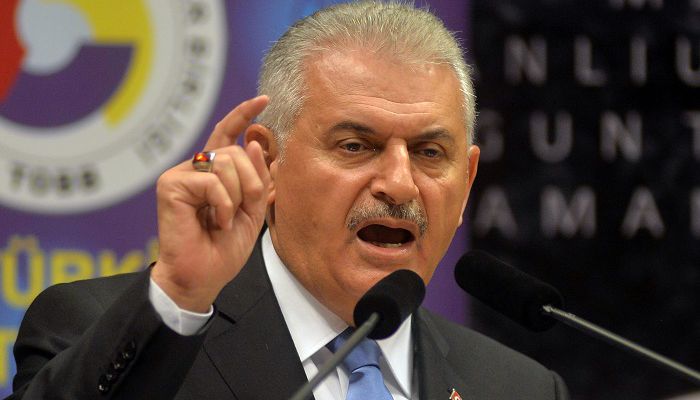Turkish Prime Minister Binali Yıldırım has called on members of the Turkish judiciary to speed up trials related to a July 15 failed coup attempt and not to wait for the collection of evidence against alleged members of the faith-based Gülen movement, which is accused by the government of masterminding the failed coup.
“Investigations into FETÖ [a derogatory term coined by the Justice and Development Party (AKP) government to refer to members of the Gülen movement] are going slowly. I call on the judges to speed up the trial process. Those who staged the coup and who gave orders for it are clear. Do not prolong the cases to see this or that piece of evidence,” said Yıldırım, speaking to a group of journalists during a live TV program on Saturday night.
The prime minister said prolongation of the coup trials will lead to a loss of confidence in the judiciary.
“Bring together all the people who participated in the coup attempt, bring together the ones who gave orders for it and conclude the cases. I do not understand. I am not a lawyer. I do not accept this way of thinking. Here I am appealing to the judges and prosecutors. As time goes by, public confidence in the judiciary declines. There will be enough time for you to try the people who have relations with the organization [Gülen movement]. Why do you wait for [the trial of ] the people who were caught red-handed?” added Yıldırım.
Making an analogy between the Ergenekon and Balyoz coup cases of 2007-2013 and current coup attempt cases, Yıldırım said: “There were Ergenekon and Balyoz. But members of FETÖ watered down the cases and the facts, which turned out to be lies.”
Over 3,500 judges and prosecutors have been fired has since a July 15 coup attempt in Turkey.
Yıldırım’s statement on the Ergenekon and Balyoz cases where dozens of military officers and generals were jailed for plotting a coup attempt against the AKP, contradicted earlier remarks by President Recep Tayyip Erdoğan, who said he had been deceived about the cases.
The prime minister also criticized the main opposition Republican People’s Party (CHP) for voicing concerns about human rights violations faced by followers of the Gülen movement.
The AKP government, which launched a war against the Gülen movement following the eruption of a corruption scandal in late 2013 in which senior government members were implicated, carried its ongoing crackdown on the movement and its sympathizers to a new level after a failed coup attempt on July 15 that killed 240 people and injured a thousand others.
Although the movement strongly denies having any role in the corruption probe or the coup attempt, the government accuses it of having masterminded both despite the lack of any tangible evidence.
Turkish Islamic scholar Fethullah Gülen called for an international investigation into the coup attempt, but President Erdoğan — calling the coup attempt “a great gift from God” — and the government initiated a widespread purge aimed at cleansing sympathizers of the movement from within state institutions, dehumanizing its popular figures and putting them in custody.
A report published by the German Focus magazine in August claimed that Turkish government members decided to put the blame for the coup attempt on Gülen half an hour after the uprising and agreed to begin a purge of Gülen followers the next day.
More than 110,000 people have been purged from state bodies, 82,000 detained and 35,000 arrested since the coup attempt. Arrestees include journalists, judges, prosecutors, police officers, military personnel, doctors, court personnel and even a comedian.



